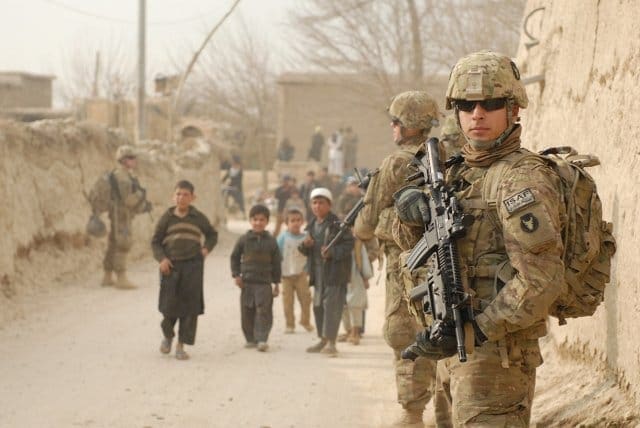With Donald Trump winning the 2016 presidential election, we were all told, policies would be more home-centered, with the Trump administration becoming less willing to engage in foreign intervention in the Middle East in order to save taxpayer dollars.
As it turned out, Trump hasn’t been living up to the hype.

Speaking about the 16-year-old Afghanistan war this week, the president told a room full of Army soldiers we would remain in the country.
We will be there, he told the audience, to “fight terrorists,” and not to nation-build. But for that, he must escalate U.S. presence, increasing the number of troops on the ground. And that takes a lot of cash.
The same man who once said that if he was president, “the era of nation-building will be ended,” doesn’t seem to realize that regardless of our intentions in the region, what has been keeping this nearly two-decade invasion going has been nothing but bad economic policy that steals from the country’s future. On top of that, the results on the ground are nothing close to what we set ourselves to do, which is to rid the region of terrorism.
As a matter of fact, ever since the U.S. invasions of both Iraq and Afghanistan, ISIS has grown in the region.
Paraphrasing a veteran friend of mine who served in the special forces in Afghanistan years back, when the U.S. ramps up its presence in the region, locals are driven to pick sides. As a result, they either fall into the hands of terrorist organizations out of resentment or are killed for standing with the U.S., otherwise known locally as the invaders.
So as Afghans want all Westerners to leave and the Taliban reassure reporters that more U.S. presence will lead to nothing but more waste of tax dollars, we keep telling ourselves that exiting the country for good would lead to nothing but disaster. Both the left and the right support Trump in staying in the country indefinitely, apparently oblivious that this entire war has been paid for through loans and loans alone, with all its ghost soldiers, bad uniform decisions, and waste of dollars on a military intervention that has helped the local poppy production.
It’s time we ask ourselves whether we are really willing to tell future U.S. generations their hard-earned money is needed to pay for a war that has helped to boost the opioid epidemic and the threat of terrorism globally. If so, are we also willing to jeopardize any chance at economic recovery anytime soon in the name of a war on terror that was never meant to be won?
Unfortunately, governments aren’t in the business of listening to people and actually putting their well-being first. This hasn’t been the case when we entered Afghanistan and is not going to be the case now. The best libertarians can continue doing is to never stop talking about the incredible waste of resources, money, and lives associated with these military interventions.
And in a practical sense, continue fighting for decentralization. Because when power is at arm’s reach, it’s easier for us to keep an eye on it.

























